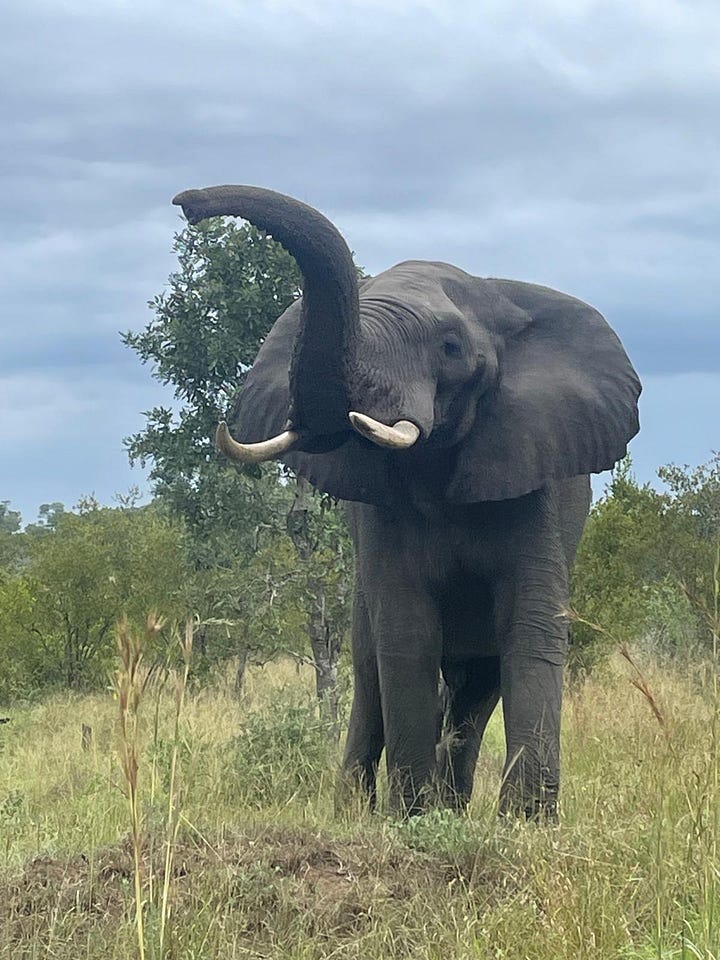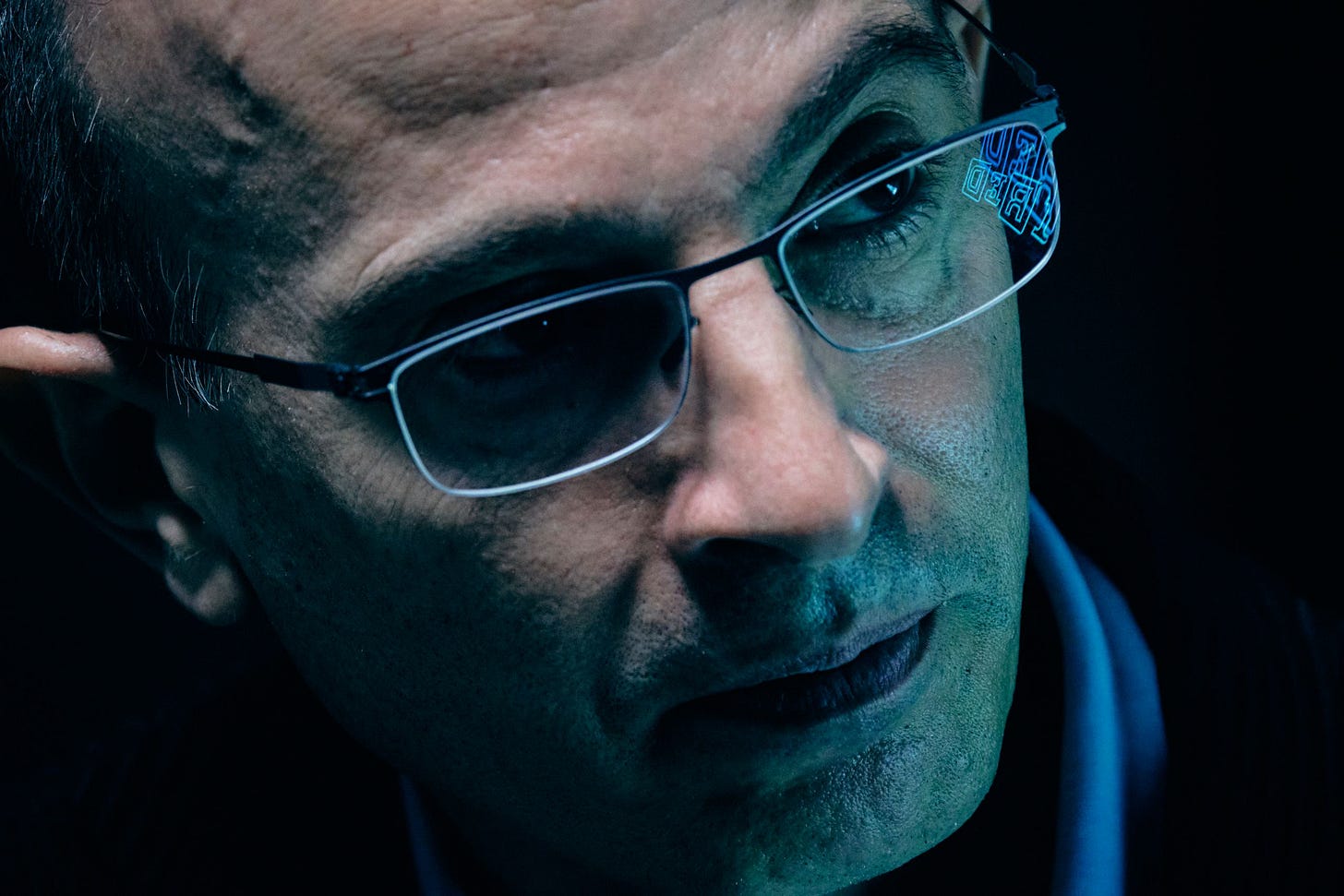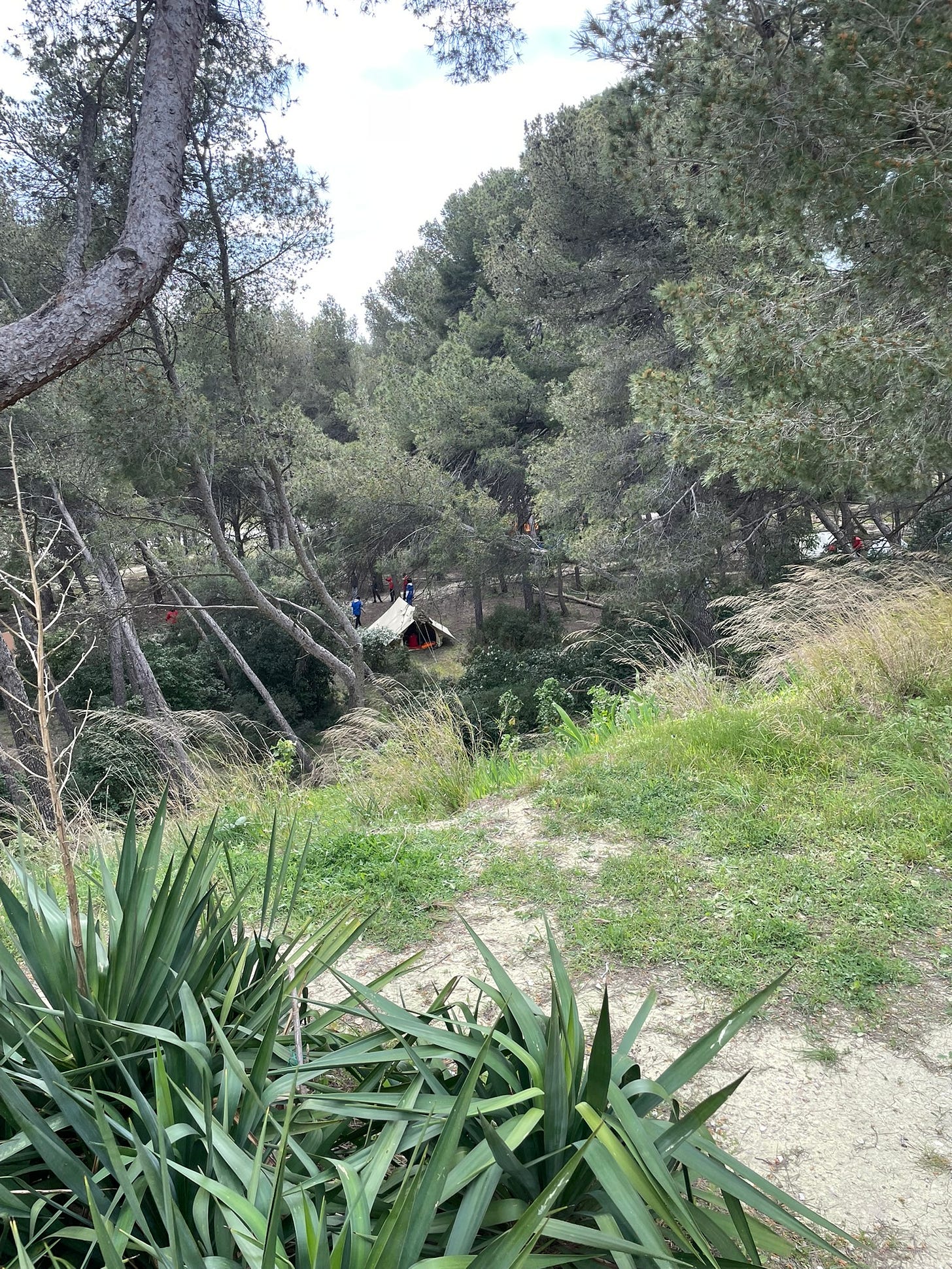What a Foreign Language Can Teach Us About Life
A weekly dose of motivation, inspiration and education from Masha and Jedrek.
Ahoy Sailors!
It’s Jedrek! This newsletter aims to connect people from around the world who use English to communicate. I always say that language is just a tool for something much more meaningful.
This week, I planned to celebrate April Fool’s week, so you can expect more of your favorite section—memes! ;) I also intended to write about the funny side of speaking foreign languages, but I ended up with a more serious piece on the hidden nature of foreign languages.
Our crew also has something special: Solange makes her debut with some lovely photos from Kruger Park in South Africa. Agata brings us another gem of her excellent storytelling—and she’s still looking for a job and clients, so don’t forget to check out her hotel for dogs! Ania woke up with a strange word on her mind, and Mateusz shares another cool song of the week that I’ve happily added to our Spotify playlist. There are also some exciting links, multimedia to explore, and a snapshot of my France.
Have a fantastic Sunday! Let’s row, row, row this boat!
Humility, Humanity, and Connection
By Jedrek Stepien
I’m a teacher of a foreign language, but I’ve learned that a foreign language is a teacher in itself. A teacher of self-acceptance, humbleness and distance to onself.
Unlike programming languages, we learn human ones to confront others in them. And that means exposing onself, very ofter showing weakness too. This is one of the hardest lessons, not just in learning languages but in life generally: to show weakness and to ask for help.
Somehow, during the course of history, our culture became alergic to weakness. I’m not sure, but maybe it is the reaction to religions shoving it down our throats? Anyway, whole industries grew around the need to mask weakness. Language schools joined this trend too. If Masha was wondering the other day why machines teach us languages - here's the answer I think: we replace human teachers with machines because our weakness is irrelevant when faced with it. The machine is a break in the circuit, it doesn’t transmit or misuse the knowledge about it (or so we think). The whole AI is one big, maybe ultimate, attempt at masking our weaknesses.
But when it comes to foreign languages, we can’t hide. No matter how long we have been preparing ourselves, or how much we’ve spend on our courses, we have to accept reality: we’ll make mistakes. In other words, we may try hard to shave our beards, we end up shaving our birds. I’ve been there myself - in French, I tried once to say to the courier that I’m on my way home, but I said I’m horny. Or worse, reporting a theft to the policeman I said with all seriousness that I have been raped.
Basically, when you start speaking another language you have to accept making mistakes—both small and large with every opening of your mouth. And these mistakes strip us off all clothes and all appearances. Speaking a foreign language we stand naked in front of another person hoping for their understanding.
And this is also why I rarely laugh at linguistic blunders. I know they can be funny, the more so if made by some VIPs, but I think it’s generally a bit below the belt.
Blunder was made and people laughed but, paradoxically, communication very often survives. Because communication is a connection between minds, not languages. Our hopelessness makes the other person try harder to bridge the gaps in meaning. This is how we communicate with our pets, by the way—through empathy and understanding, not words.
A really good idea is, therefore, to signal our linguistic problems at the very beginning. It’s interesting, however, that it comes easier for the intermediate users than to beginners.
Beginners, who need such signaling the most, are often still not educated by the language. They come from a world where showing weakness is bad, and they’re too embarrassed or too proud to admit they need help from the other side. They also feel alone in communication, believing that the success of the entire interaction depends only on them.
But a bit more experienced users, whose struggles opened them up to others, who have experienced the generosity of the other side, are not afraid to say their language is so-so and it may need some assistance. And just by mentioning our difficulties we make the other side twice more attentive and forgiving. It doesn’t have to take the form of self-pity; just a slight wink and a smile, and the other person should understand. And it’s an incredible booster to our communication skills and a huge pressure release.
So, when I say that a foreign language is a teacher in itself, I truly mean it: it helps us open up to others, teaching us humility and forgiveness. You don’t get a lot of chances for that when communicating with machines.
AND NOW FOR SOMETHING COMPLETELY DIFFERENT…
THIS WEEK IN ToL:
Thinking Out Loud 121: Landing on the Moon - Milestone or Breakthrough?
We’re back after a three-week break from recording! I asked Masha about the difference between a milestone and a breakthrough using the example of the moon landing. I must say she did great, confirming she’s (still) on par with AI ;)
Spotify:
Apple Podcasts:
AND NOW FOR SOMETHING COMPLETELY DIFFERENT…

I WOKE UP WITH THIS WORD…
By Anna Malczewska
THE BRIGHT SIDE OF LIFE?
By Agata Kasperczak
The Alarm
I finished the class and started getting the excited kids ready to go. We were waiting for another teacher to pick them up. In the meantime, one of the moms approached me, wanting to make sure her child had really done the work on her own. Amid all this noise, the irritating, high-pitched, intermittent sound of some device was becoming more and more noticeable. Finally, the mother, unable to focus on our conversation, couldn’t stand it any longer and asked if it was possible to turn it off. At that moment, the teacher arrived, looked around the room, and—with a wild look in her eyes—ran out again, groaning, “Jesus Mary, the alarm went on!!!”
The mother, seeing the chaos and reassured that her child had worked independently without help, left. I was left alone with the group and the alarm. As I waved a handkerchief after the departing mother, I felt someone gently tap me near my hip. I turned around, assuming some toddler wanted to tell me something, and I wasn’t wrong.
“Ma’am, something keeps beeping in your back pocket,” the little one lisped.
Fortunately, the teacher didn’t call for backup, and the anti-terrorist squad didn’t storm the kindergarten.
Or maybe that was a pity?
THE QUESTION OF THE WEEK:
By Jedrek Stepien
What’s wrong with staying in the comfort zone?
The question began its week-long journey as one about the relationship between the comfort zone and satisfaction. Later, I started asking it in a more provocative way, like the one you see above. I heard many great answers, but Aga’s response was the most memorable. She said there’s nothing wrong with the comfort zone in principle, but true satisfaction doesn’t necessarily come from staying inside it. Instead, it comes from stepping outside the comfort zone and then returning to it.
THE SONG OF THE WEEK
By Mateusz Borowik
SPARKS - JanSport Backpack
It's hard to believe that the American band I’m recommending today has been active for over 50 years. Later, groups like Pet Shop Boys and Depeche Mode took inspiration from them. However, Sparks—the band in question—might even envy the success of their followers. Sparks is set to release a new album, “Mad!”, in May. Listening to their promotional songs, including today’s “JanSport Backpack,” it’s impossible not to admire a band that could have simply rested on their previous successes.
The song is theatrical, choral, and electronic. It mixes synth-pop sounds, vocal harmonies inspired by the 60s, and psychedelic synthesizers. This unique blend of styles is original yet incredibly catchy. This bittersweet story about a breakup only makes you more excited for their upcoming album.
Lyrics:
JanSport backpack
She wears a JanSport backpack
JanSport backpack
She wears a JanSport backpack
Oh why
Do you keep walking away?
Then why
Do you always treat me this way?
JanSport backpack
She wears a JanSport backpack
JanSport backpack
She wears a JanSport backpack
We're face to face, we're toe to toe
We're eye to eye, you're turning slow
Strap on your pack, now fully turned
I feel a hint I will be burned
You walk away, open the door
Enter the night, what is this for?
Out then you go, I know not where
I know not why, not just for air
I start to trail, but you walk fast
All of the girls seen from behind
JanSport backpack
They wear a JanSport backpack
JanSport backpack
They wear a JanSport backpack
Oh why?
I try my bеst everyday
Oh why, oh why, oh why?
Pleasе put your JanSport away
Oh why?
Do you keep turning away?
Oh why?
I try my best everyday
Then late each night, silent return
Take off your pack, hard to discern
We all need time, time to ourselves
But don't we owe someone in hell?
Some little phrase, I will be back
Something like that, and why the pack?
It's not my place to eye and pry
Into your pack, tempted to try
JanSport backpack
She wears a JanSport backpack
JanSport backpack
She wears a JanSport backpack
AND NOW FOR SOMETHING COMPLETELY DIFFERENT…
WHAT ELSE TO DO IN ENGLISH:
INTERVIEW: Yuval Noah Harari: ‘How Do We Share the Planet With This New Superintelligence?’
Wired.com
My brain works like this: I see a new interview with Harari, I just can’t stop myself from recommending it. I’m a bit of a particular fan of Harari-I take what he says with a pinch of salt, I think he’s awfully mainstream, but at the same time the way he communicates is so simple and clear, you got to love it.
VIDEO: How social media is changing how you talk
Ted.com
Hands up who remembers the last time I recommended a TED Talk?Because I can’t recall, at least not since we moved from Mailchimp to Substack. Anyway, here’s a video about how social media, and various influencers change the way we communicate. Just don’t get depressed by the language, it’s all been rehersed, like, one million times, don’t forget. Normal people dont’s speak like that.
MY FRANCE:

You see… each year I promise myself not to ignore the early spring sun in the south of France. Last year, I told my wife she was exaggerating when she urged me to take sunscreen on a bike ride. And I got burned. This year, I spent last weekend camping with scouts by the Mediterranean Sea. We joined a charity event to help fight cancer and spent the rest of the day watching and taking part in presentations by different uniformed services. My phone had said it would be cold and rainy, but it turned out to be warm and sunny. I got sunburned again! 😆
MY AFRICA:
By Solange Morand


Solange, who you may remember form one of our podcast episodes, is back in South Africa. She sent me these pictures from the Kruger Park.
Have a safe stay Solange, these elephants look scary! ;)
AND NOW FOR SOMETHING COMPLETELY DIFFERENT…
Dear reader!
Thank you for reading another issue of In The Same Boat Newsletter. I hope you are leaving a bit more educated, motivated and inspired when it comes to English and communication at large ;)
Consider making a small donation if this newsletter makes you feel good:
And before I say bye, please remember that I am waiting for your contributions. Send me your texts, reflections, jokes, memes, photos of spiders or whatever you want! tolpodcast@hotmail.com
Have a beautiful day!













Hah! I loved your courier blunder story :) Been there myself many times (not there, specifically, but in similarly embarrassing situations)